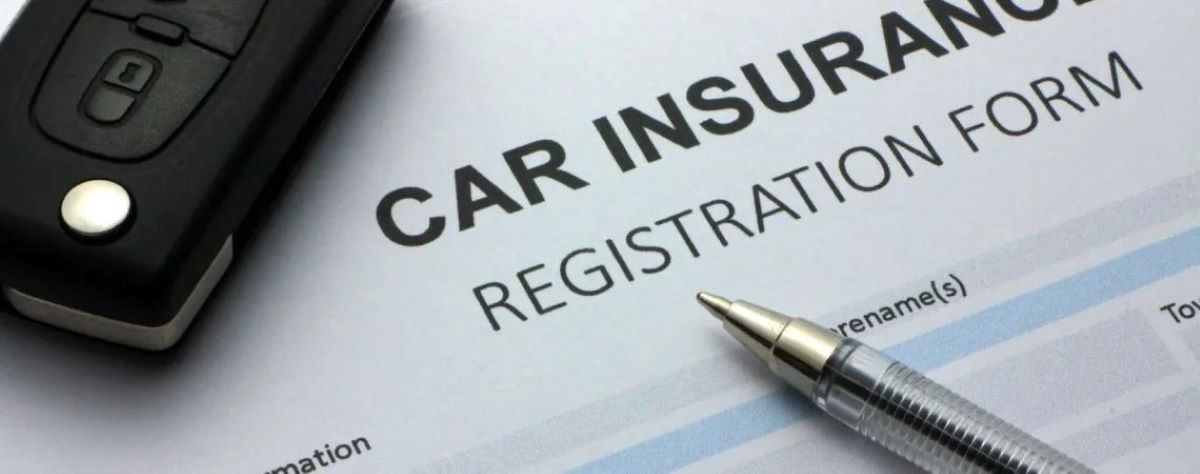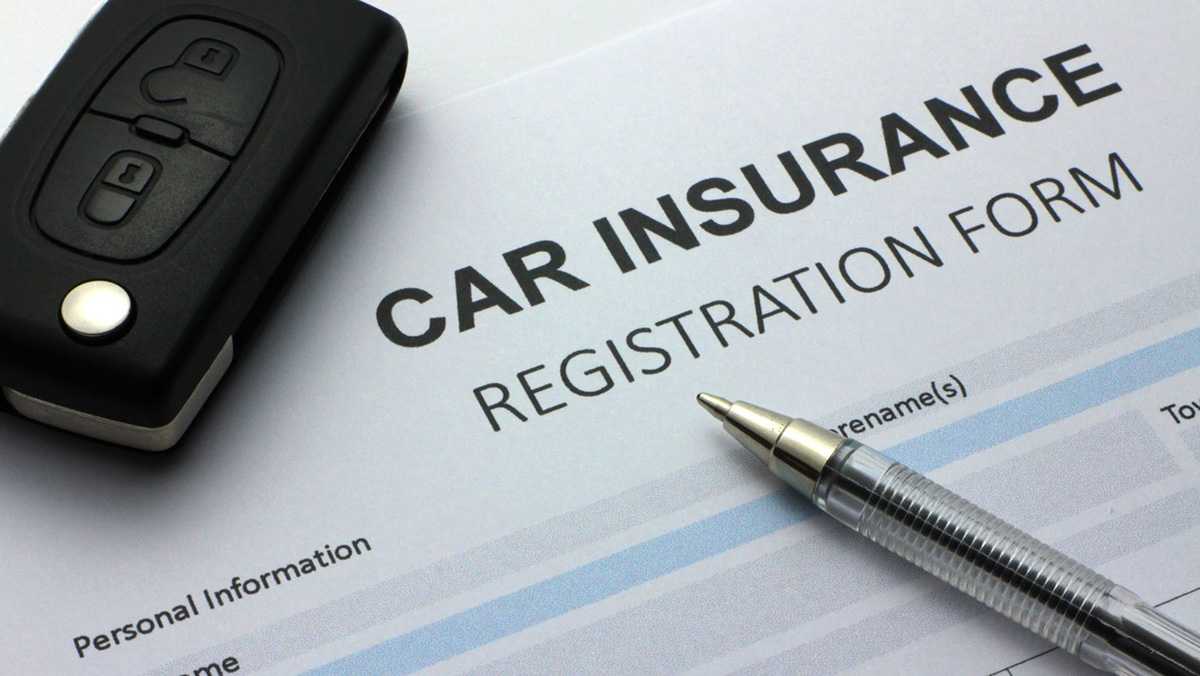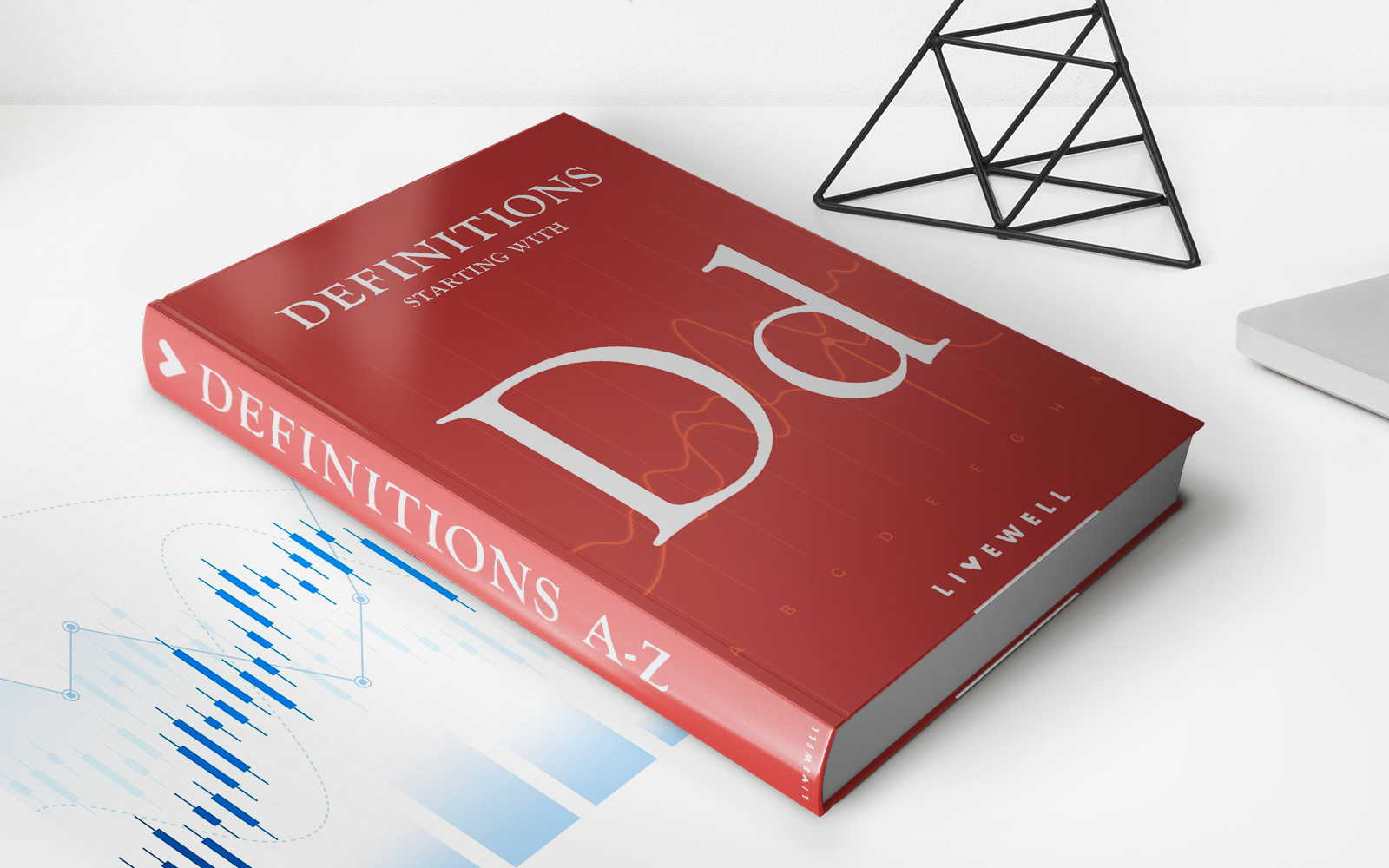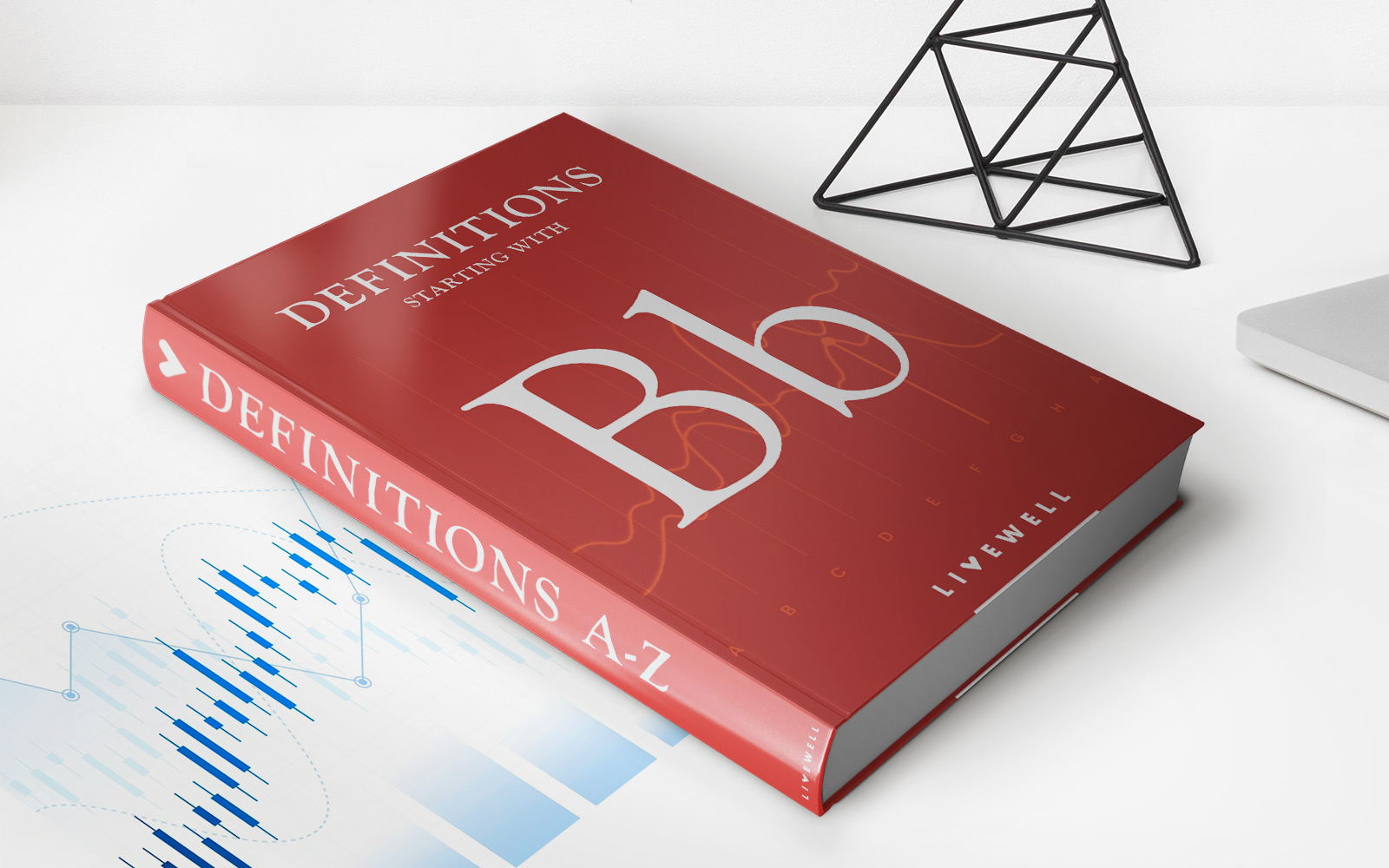

Finance
What Paperwork Do I Need To Get Car Insurance?
Modified: February 21, 2024
Learn about the essential paperwork required to secure car insurance and ensure your finances are protected on the road.
(Many of the links in this article redirect to a specific reviewed product. Your purchase of these products through affiliate links helps to generate commission for LiveWell, at no extra cost. Learn more)
Table of Contents
Introduction
When it comes to getting car insurance, there is more to it than simply choosing a policy and making a payment. Insurance companies require certain paperwork to verify personal information, vehicle details, driver’s qualifications, and previous insurance history. This paperwork is crucial in determining the coverage, premiums, and eligibility for car insurance.
Understanding the necessary paperwork for car insurance is important for both new and experienced drivers. By being prepared and providing the required documentation, you can ensure a smoother and quicker process when applying for car insurance.
In this article, we will discuss the essential paperwork that you need to have in order to obtain car insurance. From personal identification to vehicle documents and other relevant information, we will guide you through the necessary steps to get your car insured.
It’s important to note that the specific documentation requirements may vary depending on the insurance company and the state or country you reside in. However, the following are generally the most common paperwork needed when getting car insurance.
Personal Identification
When applying for car insurance, you will need to provide personal identification documents to verify your identity. These documents serve as proof that you are a legal and eligible driver. The most common forms of personal identification required by insurance companies include:
- Driver’s License: Your valid driver’s license is a must-have document when getting car insurance. It verifies that you are a licensed driver and have the legal authority to operate a vehicle. Make sure to have a valid and up-to-date driver’s license before applying for car insurance.
- Proof of Address: Insurance companies typically require proof of your residential address. This is usually done through documents such as utility bills, bank statements, or a lease agreement. The purpose of this requirement is to verify your residency and ensure that you have a stable mailing address for correspondence related to your policy.
- Social Security Number (SSN): Your SSN is often needed for insurance purposes, as it is used to check your driving history and assess potential risk. Insurance companies may request it to accurately underwrite and rate your policy. However, be cautious when sharing your SSN and ensure that you are dealing with a reputable insurance provider.
- Birth Certificate or Passport: Occasionally, insurance companies may ask for a birth certificate or passport as additional identification proof. These documents can further establish your identity and validate your legal existence.
When submitting these personal identification documents, ensure that they are valid, up-to-date, and match the information provided during the application process. Any discrepancies or inconsistencies may lead to delays or complications in obtaining your car insurance policy.
It’s worth noting that some insurance companies may also require additional forms of identification, depending on their specific policy requirements or the state regulations governing car insurance. Hence, it is advisable to check with your insurance provider regarding any additional documentation before starting the application process.
Vehicle Information
When obtaining car insurance, you will need to provide specific information about the vehicle you want to insure. This information is crucial for insurance companies to assess the risk associated with your vehicle and determine the appropriate coverage and premiums. Here are the essential vehicle details you need to provide:
- Vehicle Identification Number (VIN): The VIN is a unique 17-character identifier for your vehicle. It can usually be found on the driver’s side dashboard or inside the driver’s door jamb. The insurance company will use this number to obtain detailed information about the vehicle, including its make, model, year of manufacture, and other specific features.
- Vehicle Make and Model: You will need to provide the make (manufacturer) and model of your vehicle. For example, Toyota Camry or Ford F-150. The insurance company uses this information to determine the value, repair costs, and potential risk associated with your vehicle.
- Vehicle Usage: Insurance companies typically ask about the primary use of your vehicle, such as commuting, pleasure, or business. This information helps insurers assess the amount of time the vehicle will be on the road and the associated risk.
- Vehicle Ownership: You will need to specify whether you are the owner of the vehicle or if it is leased or financed. Insurance requirements may differ based on vehicle ownership status, so accurate information is crucial to ensure appropriate coverage.
- Vehicle Modifications: If your vehicle has undergone any modifications or additions that may affect its value or performance, you must inform the insurance company. Modifications could include aftermarket parts, lift kits, or changes to the engine or exhaust system. Failure to disclose modifications may result in coverage denial or disputes in the event of a claim.
It is essential to provide accurate and detailed information about your vehicle to avoid any complications in the event of a claim. Misrepresenting or omitting vehicle information can lead to issues with your coverage or potential policy cancellation.
Keep in mind that the type of vehicle you have, its age, safety features, and its likelihood of being stolen or involved in an accident can all impact your insurance premiums. Therefore, providing accurate and up-to-date vehicle information is essential for an accurate insurance quote and appropriate coverage.
Driver’s License
One of the primary documents required when getting car insurance is your driver’s license. Your driver’s license serves as proof that you have the legal authority to operate a motor vehicle. Insurance companies need this information to verify your driving qualifications and assess the risk associated with insuring you as a driver. Here is what you need to know about providing your driver’s license information:
Valid and Up-to-Date License: Insurance companies require a valid and up-to-date driver’s license. Ensure that your license is not expired and is still within the active period. This is crucial as an expired license may result in delays or complications in obtaining car insurance coverage.
License Number: You will need to provide your driver’s license number when applying for car insurance. The insurance company uses this number to access your driving record, including any previous accidents or traffic violations. Your driving history can influence your insurance premiums, so accurate information is essential.
License Type: Inform the insurance company about the type of license you hold, such as a regular driver’s license, a commercial driver’s license (CDL), or a learner’s permit. Different license types may have different insurance requirements and premiums associated with them.
License Restrictions: If your driver’s license has any restrictions or endorsements, such as limitations due to medical conditions or requirements for glasses or contact lenses, you must disclose this to the insurance company. These restrictions can impact your coverage or premiums.
International Driver’s License: If you are a non-U.S. resident or a foreign driver, you may need to provide an international driver’s license or other appropriate documentation. This allows the insurance company to properly evaluate your driving qualifications and determine the coverage and premiums accordingly.
Make sure to provide accurate and up-to-date information about your driver’s license to the insurance company. Any discrepancies or false information could result in denial of coverage or potential policy cancellations. Additionally, keep in mind that different states or countries may have specific requirements or regulations regarding driver’s licenses, so it’s important to be aware of the rules and provide the necessary information accordingly.
Proof of Address
When applying for car insurance, most insurance companies require proof of your residential address. This is an important step in the insurance process as it helps verify your residency and ensures that the insurance company has a valid mailing address for correspondence related to your policy. Here is what you need to know about providing proof of address:
Utility Bills: One of the most common forms of proof of address is utility bills. This can include bills for electricity, gas, water, internet, or landline phone services. Ensure that the utility bill is in your name, as insurance companies typically require verification of residence through a primary account holder.
Bank Statements: Bank statements can serve as proof of address as they are official documents from a recognized financial institution that verify your residency. Make sure the bank statement clearly displays your name and address, and that it is recent (within the last three months) to ensure its validity.
Lease or Rental Agreement: If you are renting a property, providing a lease or rental agreement can serve as proof of address. This document demonstrates your legal residence at a specific address and is usually accepted by insurance companies as a valid proof of address.
Government Documents: Certain government-issued documents can be used as proof of address. This may include a voter registration card, a residence card, or a welfare or subscription card. Check with your insurance provider to see which government documents are accepted.
Vehicle Registration: In some cases, insurance companies may accept vehicle registration documents as proof of address. This is particularly useful if the vehicle registration displays your name and current address.
Ensure that the proof of address document you provide is recent and matches the information provided during the application process. If you have recently moved, it is important to update your address before applying for car insurance to avoid any confusion or potential issues. Be aware that insurance companies may have specific criteria for accepting proof of address documents, so it’s a good idea to check with your insurance provider regarding their specific requirements.
By providing accurate and valid proof of address, you can ensure a smooth insurance application process and avoid any delays or complications in obtaining your car insurance policy.
Vehicle Registration
When applying for car insurance, one crucial document you will need to provide is the vehicle registration. Vehicle registration is a legal requirement in most jurisdictions and serves as proof that the vehicle is properly registered with the appropriate authorities. Here’s what you need to know about providing your vehicle registration when obtaining car insurance:
Proof of Ownership: The vehicle registration document serves as proof of ownership, indicating that you are the legal owner of the vehicle. Insurance companies require this document to ensure that you have the authority to insure the vehicle and to accurately associate the insurance policy with the correct vehicle.
Vehicle Information: The vehicle registration document contains essential information about the vehicle, including the make, model, year, and identification details. This information is used by the insurance company to assess the value, risk, and coverage requirements for the vehicle.
Current and Valid Registration: It is important to provide the most recent and up-to-date vehicle registration document to the insurance company. Make sure that the registration is current and not expired, as an expired registration may result in complications when obtaining car insurance coverage.
Match with VIN and Vehicle Details: The information on the vehicle registration document should match the Vehicle Identification Number (VIN) and other vehicle details provided during the insurance application process. Any discrepancies can lead to delays or complications with your insurance coverage.
Ownership Transfer Documents: If you recently purchased the vehicle and have not yet received the updated registration document, insurance companies may accept the bill of sale or other ownership transfer documents as temporary proof of ownership. However, ensure that you promptly obtain the vehicle registration once it becomes available.
It’s important to keep the vehicle registration document in a safe place, as it will be needed for various purposes, including obtaining car insurance, renewing your registration, and selling the vehicle in the future.
If you have any queries or concerns regarding the specific requirements for providing your vehicle registration, it’s advisable to contact your insurance provider for clarification. By providing accurate and up-to-date vehicle registration information, you can ensure a seamless process when obtaining car insurance coverage.
Vehicle Title
When applying for car insurance, one important document that may be required is the vehicle title. The vehicle title is a legal document that establishes ownership of the vehicle and contains important information about the vehicle’s history. Here’s what you need to know about providing your vehicle title when obtaining car insurance:
Proof of Ownership: The vehicle title serves as proof that you are the legal owner of the vehicle. Insurance companies require this document to ensure that you have the authority to insure the vehicle.
Vehicle Information: The vehicle title contains essential information about the vehicle, such as the make, model, year, Vehicle Identification Number (VIN), and any other pertinent details. This information is used by the insurance company to accurately associate the insurance policy with the correct vehicle and assess its value and risk.
Current and Valid Title: It is important to provide the most recent and up-to-date vehicle title to the insurance company. The title should be in your name or the name of the person who will be listed as the policyholder. Make sure the title is not expired or invalidated, as an expired title may result in complications when obtaining car insurance coverage.
Title Transfer Documentation: If you recently purchased the vehicle and have not yet received the updated title in your name, insurance companies may accept the bill of sale or other ownership transfer documents as temporary proof of ownership. However, it is important to obtain the vehicle title in your name as soon as possible to ensure the registration and insurance process goes smoothly.
If you have any liens or loans on the vehicle, ensure that the insurance company is aware of this and includes the appropriate lienholder information on the policy. This is crucial since the lienholder may have specific insurance requirements and may need to be listed as a loss payee on the policy.
In some cases, if the vehicle is leased, the leasing company may retain the title. In this situation, the insurance company may require additional documentation or verification from the leasing company to proceed with the insurance coverage.
If you have any questions or concerns about providing your vehicle title, it is advisable to contact your insurance provider for clarification. By providing accurate and up-to-date vehicle title information, you can ensure a seamless process when obtaining car insurance coverage.
Insurance Declarations Page
When obtaining car insurance, it is important to provide the insurance declarations page to the insurance company. The insurance declarations page, also known as the dec page, is a summary of the key details and coverage provided by your car insurance policy. Here’s what you need to know about this important document:
Policy Information: The insurance declarations page contains essential information about your car insurance policy, including the policy number, effective dates, and the name of the insurance company. This information helps the insurance company identify and associate the submitted documents with the correct policy.
Coverage Details: The dec page provides a summary of the coverage and limits selected on your car insurance policy. This includes liability coverage, comprehensive coverage, collision coverage, uninsured/underinsured motorist coverage, and any additional endorsements or riders. The coverage details help the insurance company understand the extent of the coverage and assess the associated risk.
Premiums and Deductibles: The dec page outlines the premiums you are required to pay for your car insurance coverage. It also includes the deductible amounts for comprehensive and collision coverage, which is the amount you have to pay out of pocket before the insurance company covers the remaining cost. Providing this information helps the insurance company accurately assess the financial aspects of your policy.
Policyholder Information: The insurance declarations page includes your personal information and details, such as your name, address, and contact information. It is important to ensure that this information matches the details you provide during the application process and any other documentation submitted.
Vehicle Details: The dec page should include information about the vehicle(s) covered under the policy, such as the make, model, year, and Vehicle Identification Number (VIN). This allows the insurance company to verify that the correct vehicle is being insured and assess its risk and value accurately.
The insurance declarations page is a crucial document that helps insurance companies understand the specifics of your policy and ensure accurate coverage. It is important to provide this document to the insurance company when obtaining car insurance, as any discrepancies or missing information may lead to delays or complications in processing your policy.
Ensure that the information on the insurance declarations page is accurate, complete, and up to date. If you have any questions or concerns about the contents of the dec page or its submission, it is recommended to contact your insurance provider for clarification. By providing the insurance declarations page, you can facilitate a smooth and efficient process of obtaining car insurance coverage.
Previous Insurance Information
When applying for car insurance, it is important to provide information about your previous insurance coverage. Insurance companies typically ask for details about your prior auto insurance history, including any existing or previous policies you may have had. Here’s what you need to know about providing your previous insurance information:
Prior Insurance Carrier: You will need to provide the name of the insurance company you were previously insured with. This allows the new insurance company to verify your insurance history and potentially obtain your claims history as well. Providing accurate information enables the insurance company to assess your risk accurately.
Prior Policy Expiration Date: It is necessary to provide the date when your previous policy expired. This detail helps determine whether there were any gaps in your insurance coverage and ensures a smooth transition when switching insurance providers.
Reason for Switching Insurance: Insurance companies may inquire about the reason for switching insurance providers. Common reasons include seeking better rates, dissatisfaction with the previous company’s services, or a change in personal circumstances. While it is not mandatory to provide this information, it can help the insurance company understand your needs and preferences.
Prior Coverage and Limits: You will need to provide details about the coverage and limits of your previous insurance policy. This includes the liability coverage, comprehensive coverage, collision coverage, and any additional endorsements or riders you had. Providing this information helps the new insurance company assess your current coverage needs and create a policy that suits your requirements.
Claims History: Insurance companies may request information about your claims history, including any accidents, tickets, or other incidents you have been involved in. Be prepared to provide details such as the date, description of the incident, and the amount of any claims filed. Accurate disclosure of claims history is crucial, as false or incomplete information can result in complications or the denial of coverage.
By providing accurate and complete information about your previous insurance coverage, you help insurance companies understand your insurance history and determine the appropriate rates, coverage, and discounts you may be eligible for. In some cases, insurance companies may even offer a discount for having continuous coverage or a good claims history.
If you do not have prior insurance coverage or are a new driver, you should inform the insurance company accordingly. Insurance companies have different policies and options for new drivers or those without any prior insurance history.
Always be transparent and accurate with the information you provide regarding your previous insurance coverage. This not only ensures a smooth insurance application process but also helps insurance companies accurately assess your risk and provide you with the appropriate coverage for your needs.
Vehicle Inspection Report
When obtaining car insurance, some insurance companies may require a vehicle inspection report as part of the application process. A vehicle inspection report helps assess the overall condition and safety of your vehicle, ensuring it meets certain standards and requirements. Here’s what you need to know about the vehicle inspection report:
Purpose of the Inspection: The purpose of the vehicle inspection report is to evaluate the condition and roadworthiness of your vehicle. It aims to identify any pre-existing damage, potential safety issues, or modifications that may affect the vehicle’s insurability or coverage.
Inspection Process: The inspection process typically involves visiting an authorized inspection center, which could be a certified mechanic or an inspection station designated by the insurance company. The inspector will conduct a comprehensive evaluation of the vehicle’s exterior, interior, mechanical components, and safety features.
Vehicle Components Inspected: The inspection will assess various components of the vehicle, including but not limited to the engine, brakes, tires, suspension, exhaust system, lights, windshield, windows, mirrors, and seat belts. The inspector may also examine the vehicle for signs of previous damage, rust, or other issues that may impact its insurability.
Documentation: The inspector will provide a detailed report after completing the inspection, which outlines the findings and recommendations, if any. This report will include information about the overall condition of the vehicle and any repairs or maintenance suggestions that may be necessary.
Insurance Company Requirements: Not all insurance companies require a vehicle inspection report. However, if your insurance company does require it, they will typically provide specific instructions on the inspection process, including any authorized inspection centers or mechanics you should visit. It’s essential to follow these instructions and provide the inspection report within the given timeframe.
Providing a vehicle inspection report demonstrates to the insurance company that your vehicle is in good condition and meets the necessary safety standards. It ensures that the insurance company accurately evaluates the risk associated with insuring your vehicle and determines the appropriate coverage and premiums.
If your vehicle passes the inspection without any issues, it can positively impact your insurance rates and coverage. However, if the inspection reveals any safety concerns or mechanical issues, the insurance company may require repairs or maintenance to be completed before providing coverage.
Remember to keep a copy of the vehicle inspection report for your records. It may come in handy when renewing your policy or if any disputes arise regarding the condition of your vehicle in the future.
If you have any questions or concerns about the vehicle inspection process or its requirements, it is advisable to contact your insurance provider for clarification. By providing an accurate and satisfactory vehicle inspection report, you can ensure a smooth process when obtaining car insurance coverage.
Additional Documents (if applicable)
In addition to the essential paperwork mentioned earlier, there may be additional documents required when obtaining car insurance. These additional documents typically come into play in specific situations or when certain circumstances apply. Here are some examples of additional documents that may be requested:
Proof of Vehicle Ownership: If you are insuring a vehicle that is not registered in your name, you may need to provide additional documentation to prove your ownership or insurable interest in the vehicle. This could include a bill of sale, a title transfer form, or a power of attorney document.
SR-22 Form: An SR-22 form is a certificate of financial responsibility that may be required if you have been involved in certain driving offenses, such as driving under the influence (DUI) or driving without insurance. Insurance companies may require an SR-22 form to be submitted to vouch for your insurance coverage compliance with state regulations.
Proof of Non-Ownership: In some cases, insurance companies may request proof that you do not own a vehicle when applying for non-owner car insurance. This could include a letter from a previous insurer stating that you did not have any owned vehicles or other suitable documentation.
Proof of Employment: If you are applying for commercial car insurance or using your vehicle for business purposes, the insurance company may request proof of employment or business documentation. This can help verify the necessity for commercial coverage and ensure appropriate coverage levels.
Special Circumstances Documentation: If you fall into a unique or specialized category, such as being a high-risk driver, a newly licensed driver, or a driver with a foreign license, the insurance company may request specific documentation to assess your situation more accurately. This could include driving school certificates, translated driving records, or proof of completion of defensive driving courses.
Other Relevant Documents: Depending on your specific situation or the requirements of your insurance company, there may be other documents needed. This could include documentation related to military service, academic achievements, or other factors that may influence your insurance coverage or rates.
It is important to consult with your insurance provider to understand if any additional documents are required based on your circumstances. Providing these documents in a timely and accurate manner can help streamline the insurance application process and ensure that you receive appropriate coverage.
Remember to maintain copies of all documents submitted for your records. These documents may need to be referenced in the future, especially during policy renewals or if any disputes arise regarding your insurance coverage.
If you have any questions or concerns about the specific documentation requirements, it is recommended to contact your insurance provider directly. They will be able to provide you with the necessary guidance and instructions to ensure a smooth insurance application process.
Conclusion
Obtaining car insurance requires providing essential paperwork to insurance companies to verify personal information, vehicle details, driving qualifications, and insurance history. By understanding the necessary documents and ensuring their accuracy and completeness, you can ensure a smoother and more efficient car insurance application process.
Personal identification documents, such as a valid driver’s license and proof of address, are essential to establish your eligibility as a driver and verify your residency. Vehicle information, including the VIN, make, model, and ownership details, helps insurance companies assess the risk and value associated with insuring your vehicle. Additionally, providing the vehicle registration and title documents proves ownership and legal compliance.
Insurance-related documents, such as the insurance declarations page, provide an overview of your policy details, including coverage, premiums, and policyholder information. Previous insurance information helps insurers assess your insurance history and determine appropriate rates. In some cases, a vehicle inspection report may be required to evaluate the vehicle’s condition and safety.
Additional documents may be requested in specific situations, such as non-ownership situations, commercial insurance, or specialized circumstances. These documents provide additional information to insurance companies to accurately assess your coverage needs.
Remember to be accurate and transparent when providing all the necessary paperwork. Any discrepancies or false information can lead to complications or even denial of coverage. Maintain copies of all submitted documents for your records, as they may be needed for future reference.
If you have any questions or concerns about the specific requirements or documents needed for your car insurance application, it is advisable to reach out to your insurance provider. They can provide you with the necessary guidance and ensure a smooth and successful insurance application process.
By being prepared and providing the required paperwork, you are taking an important step toward securing the car insurance coverage you need. With the right documentation, you can drive with confidence, knowing that you are protected in the event of an accident or unforeseen circumstance.














